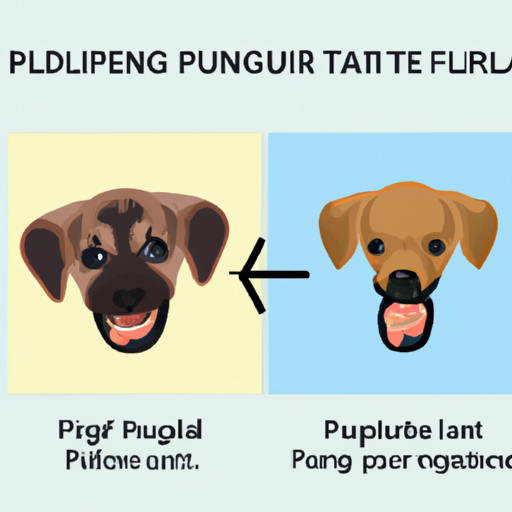As a caregiver, understanding the timing and process of your dog’s dental development can be a critical part of ensuring their overall health and well-being.
Understanding the Basics of Canine Dental Development
Just like humans, dogs go through two sets of teeth throughout their lives. The first set, known as deciduous or “baby” teeth, emerge when they are puppies. The second set, their permanent or “adult” teeth, come in as they mature.
- Deciduous Teeth: These begin to emerge when puppies are about 3 to 6 weeks old. They total 28 in number.
- Permanent Teeth: These begin to appear when dogs are about 3 to 7 months old. They total 42 in number.
It’s important to note that these ages are averages, and the exact timing can vary based on breed and individual dog.
The Process of Getting Adult Teeth
The transition from deciduous to permanent teeth is not always a smooth one. Sometimes, the baby teeth don’t fall out as they should, which can lead to complications.
Here is a general timeline for when you can expect your dog’s adult teeth to come in:
- 3-4 Months: The incisors, or front teeth, begin to emerge.
- 4-6 Months: The canine teeth, or “fangs,” and premolars, which are the teeth located between the canines and molars, start to emerge.
- 5-7 Months: The molars, or back teeth, begin to emerge.
During this time, you may notice your dog chewing more than usual. This is a natural response to the discomfort of teething, and providing appropriate chew toys can help alleviate this discomfort.
Spotting Dental Problems in Your Dog
As your dog’s caregiver, you play a critical role in identifying potential dental problems early. Here are some signs to look out for:
- Persistent bad breath
- Loose or broken teeth
- Reduced appetite or refusal to eat
- Unusual chewing, drooling, or dropping food from the mouth
- Swelling in the areas surrounding the mouth
- Bleeding from the mouth
If you observe any of these signs, it is essential to seek veterinary care as soon as possible.
Caring for Your Dog’s Adult Teeth
Good dental hygiene is just as important for dogs as it is for humans. Here are some ways you can help keep your dog’s adult teeth healthy:
- Regular Brushing: Use a dog-specific toothpaste and a soft toothbrush. Start slow and make it a positive experience.
- Dental Treats and Toys: These can help clean your dog’s teeth and keep their gums healthy.
- Regular Vet Check-ups: Your vet can perform professional cleanings and spot potential problems early.
The Role of Diet in Dental Health
A dog’s diet can have a significant impact on their dental health. Foods that are high in sugars and carbohydrates can lead to a buildup of plaque and tartar, leading to dental diseases.
On the other hand, a balanced diet that includes a good mix of dry and wet food can help keep your dog’s teeth healthy. Dry food can help scrape off plaque and tartar, while wet food can provide necessary hydration and nutrients.
A Quick Word on Dental Diseases in Dogs
It’s estimated that over 85% of dogs over the age of 3 have some form of dental disease. These can range from mild gingivitis to severe periodontitis, which can lead to tooth loss and other serious health issues.
As a caregiver, being proactive about your dog’s dental health can help prevent these diseases and ensure your dog has a happy, healthy life.
FAQ
Q: What should I do if my dog’s baby tooth doesn’t fall out?
A: If a baby tooth doesn’t fall out, it can prevent the adult tooth from growing in properly. In such cases, it’s best to seek veterinary help.
Q: How often should I brush my dog’s teeth?
A: Ideally, you should brush your dog’s teeth daily. However, if this isn’t possible, aim for at least 3-4 times a week.
Q: What if my dog won’t let me brush their teeth?
A: You can try using dental treats or toys as an alternative. However, brushing is the most effective way to maintain dental health, so it’s worth working with your vet or a behaviorist to make it a positive experience for your dog.
Understanding when your dogs get their adult teeth is a crucial part of being an effective caregiver. By knowing what to expect and being proactive about dental hygiene, you can help ensure your dog’s teeth stay healthy for years to come.



